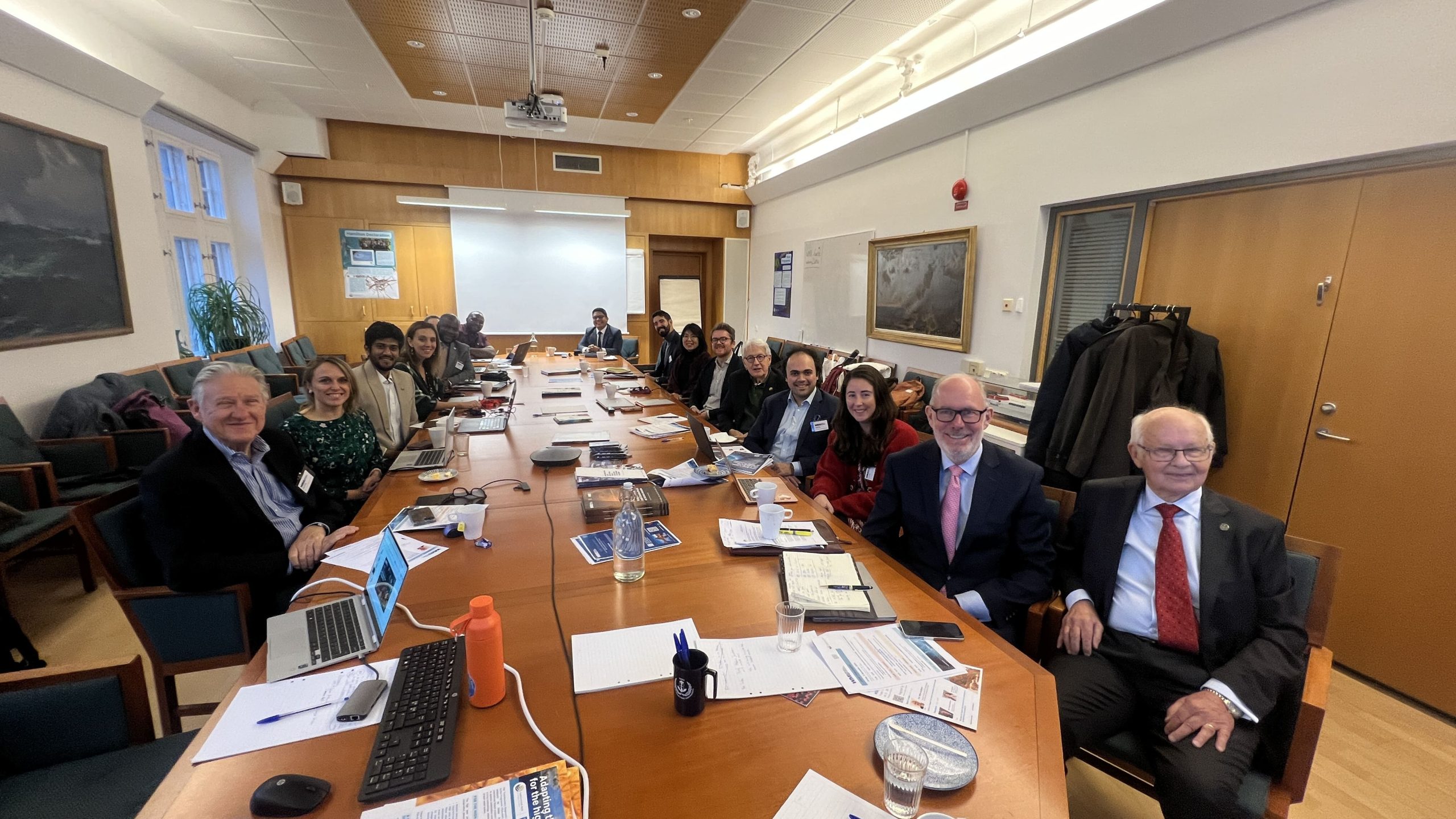
From 4-6 December, the World Maritime University (WMU)-Sasakawa Global Ocean Institute (GOI) and the Sargasso Sea Commission hosted a series of joint meetings and capacity development seminars at WMU headquarters in Malmö, Sweden. The event included distinguished special lectures on the topics of ocean sustainability, governance and protection of the marine environment. Professor Maximo Q. Mejia Jr, WMU President, met with the delegation and congratulated the Commission on their achievements, inviting future collaboration on matters of common interest.
Ocean Governance and Protection Joint Meetings with Sargasso Sea Commission
Project Meetings and Key Discussions
The joint event began with project meetings for the Sargasso Sea Commission Global Environment Facility (GEF) project, "Strengthening the Stewardship of an Economically and Biologically Significant High Seas Area – the Sargasso Sea," in which WMU is a partner. Discussions covered the Socio-Ecosystem Diagnostic Analysis (SEDA) and a Steering Committee Review.
Distinguished commissioners, invited experts, and observers deliberated on SEDA and the Strategic Action Plan. Professor David Freestone, Executive Secretary of the Sargasso Sea Commission, emphasized the importance of formalizing conservation and governance measures for the Sargasso Sea, aligning them with the BBNJ Agreement under the United Nations Convention on the Law of the Sea. Notable attendees included HE Ambassador Ron Pinder, Ambassador-at-Large of the Bahamas, and Honorable William P. Moore, Former Canadian Senator.
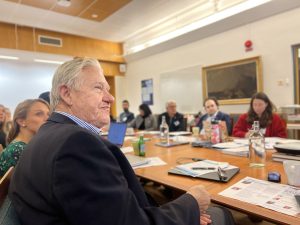
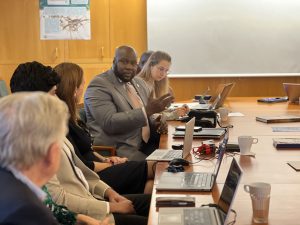
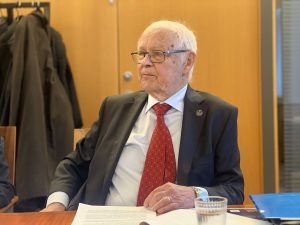
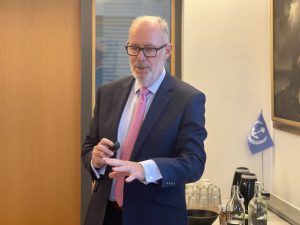
Future Ocean Programme and Capacity Development
The WMU-GOI hosted an informative session titled “Future Ocean - How to Combat the Triple Planetary Crisis?”, focusing on the four pillars of the Future Ocean Programme (FOP). WMU Principal Investigators—Dr. Zhen Sun, Dr. Aleke Stöfen-O’Brien, Dr. Aspasia Pastra, and Dr. Ríán Derrig—presented ongoing research on topics including:
- Regimes & Institutional Interactions
- Non-state Actors
- Co-designing a Blueprint for Ocean Observation Technologies
- The Future of Ocean Governance
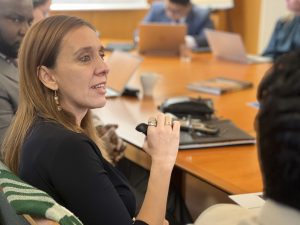
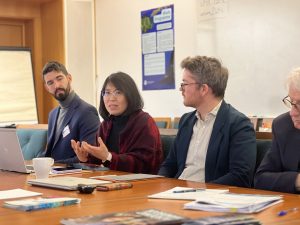
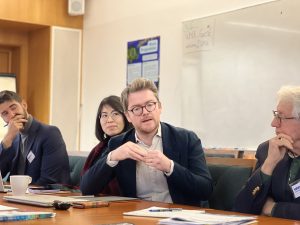
Distinguished Lecture Series and Webinar
The event concluded with a webinar as part of the Distinguished Lecture Series, “Ocean Governance, Liability, and the Sargasso Sea.” The session attracted an international audience of ocean professionals, both onsite and online. Professor Måns Jacobsson delivered a lecture on “Liability for Damage to the Marine Environment in Private and Public Law,” followed by a capacity development presentation by Professor Freestone and Ms. Fae Sapsford on the Sargasso Sea Commission’s contributions to the World Ocean Assessment III.
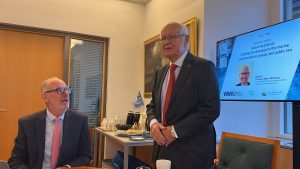
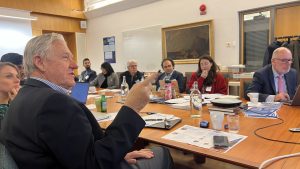
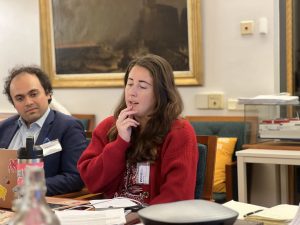
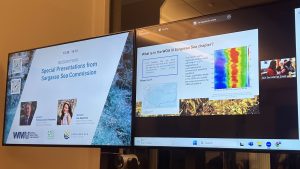
About the Future Ocean Programme
Funded by The Nippon Foundation, the Future Ocean Programme aims to generate knowledge on how law, political science, and public policy can drive positive change in humanity’s relationship with the ocean. The Programme addresses the triple planetary crisis of biodiversity loss, climate change, and pollution.
For more information and access to post-event materials, contact:
about the world maritime university
The World Maritime University (WMU) in Malmö, Sweden is established within the framework of the International Maritime Organization, a specialized agency of the United Nations. The mission of WMU is to be the world centre of excellence in postgraduate maritime and oceans education, professional training and research, while building global capacity and promoting sustainable development. WMU is an organization by and for the international maritime community and is committed to the United Nations 2030 Agenda for Sustainable Development.
about wmu-sasakawa global ocean institute
The vision of the WMU-Sasakawa Global Ocean Institute is to act as an independent focal point for the ocean science-policy-law-industry-society interface where policy makers, the scientific community, regulators, industry actors, academics, and representatives of civil society meet to discuss how best to manage and use ocean spaces and their resources in accordance with the United Nations 2030 Agenda for Sustainable Development. The Institute was inaugurated in May 2018 and made possible through generous support from The Nippon Foundation of Japan, the Governments of Sweden, Canada, and Germany, as well as the City of Malmö.
about the sargasso sea commission
The Sargasso Sea Commission (SSC) was founded after the signing of the Hamilton Convention on the Conservation of the Sargasso Sea in Bermuda in 2014 and to date consists of ten government signatories as well as other supporting nations such as the Netherlands, Sweden, South Africa and France. Currently, the area of collaboration for the SSC consists of 2,000,000 sq miles and is governed by the high seas governance system under the law of the sea and international law. A large focus of the SSC is to collect data using modern technological inventions and AI, by which it aims to monitor and track human activity in the area and how it affects the unique marine environment of the area as well as its marine life.
The Commission strives to achieve its objectives of:
- Partnerships and organisational infrastructure;
- Improved knowledge base to support a collaborative, adaptive ecosystem-based stewardship approach;
- Development of a Strategic Action Programme for addressing threats and strengthening the stewardship;
- Knowledge management, monitoring and evaluation.
Through this, the Commission aims to strengthen the stewardship of the economically and biologically significant high seas area.
